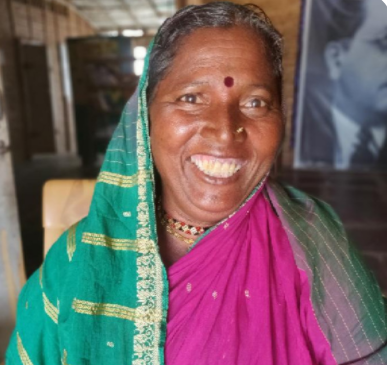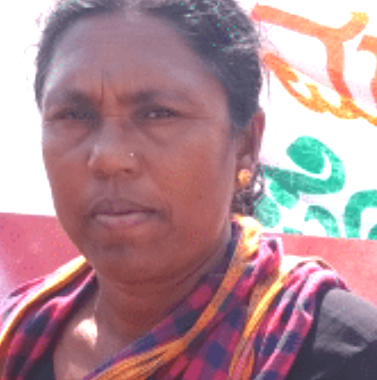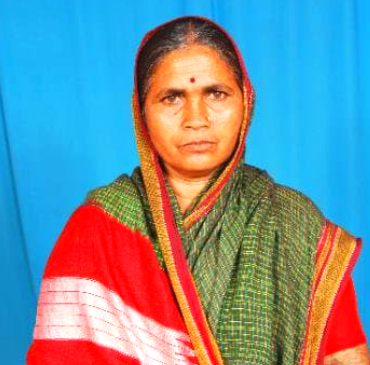Building momentum in seven PHCs (2017-18):
The processes and activities had two specific target populations for whom the access to primary health care services in general is very important for their survival and to live with a sense of dignity. One, rural women in the very disadvantaged areas of north Karnataka in Raichur district. They are under the jurisdiction of seven primary health centres (each PHC caters to a population of about 35,000 people). Two, the intensive focus of the activities was on the Dalit (historically treated as outcastes and untouchables, which continues in various ways in society) women, the most marginalized and socially excluded sections within the already underserved populations. The Dalit communities of 45 villages under seven PHCs were intensively mobilised through community pictorial surveys, PHC level dialogues on maternal health services and displaying of report cards in each of these PHCs.
Village ‘padayatra’ and ‘Manvi and Sindhanur Chalo’ (January 2018):
The highlight of this campaign was march on foot across 45 villages that spanned over 10 days, holding meetings in each of the villages. The march for maternal health converged in the block headquarters of Manvi and later on in Sindhanur. In both these places. Elected leaders and district authorities were invited to listen to people and people pressed for the appointment of staff, availability of medicines, regular conduct of Village Health and Nutrition Days (VHNDs). The social and political environment and the environment in the functioning of primary health centres showed some change. It is a very neglected space and needs concerted effort. However, of the many demands JMS kept before the authorities, some of the key demands pertaining to the day to day functioning of the public health centers and changes in service delivery strategies have been addressed. For example, JMS had demanded fortnightly screening of pregnant women with high risk factors, regularity in holding the monthly Village Health and Nutrition days, that all PHCs should necessarily provide all components of Antenatal care including BP check up, weight, abdominal exam, blood and urine tests at EVERY antenatal visit, STOP writing medicine prescriptions to private chemists and so on. All of these demands were accepted. These changes would help to improve quality of care in PHCs. But it would need constant watch and monitoring to ensure that these changes are sustained enough to prevent people from going to the private clinics. On the other hand exploitation by the private health care providers needs protracted and sustained effort along with other progressive groups across the state because the government’s health care policies have been very soft towards the private health care providers.
Round 2 of the maternal health campaign and impactful changes (2018-19):
Second round of the maternal health campaign was followed in 2018-19 in the same PHCs. This time, a special app was used as the monitoring tool to feed data and to generate report cards. This was the second successive year of the campaign which consistently built up people’s demand for accessible maternal health care services. The most significant change that we saw as part of this community inquiry and maternal health rights campaign was the renewed energy of women in the communities (part of JMS collective), empowered, confident leadership of JMS and more number of women leaders who emerged, a significant changes in the access of women to primary health services. Secondly, in all the Primary Health Centres, medical officers or health staff could not or did not contest the community-based data and the report cards on the availability of services. Hence, the community data-based advocacy and such data giving teeth to community’s argument for demanding adequate services was reinforced this year. Thirdly, JMS collective was able to increase the pitch of engagement on maternal health issues by holding the state level elected representatives of the area accountable. This consecutive year of campaing resulted in tangible results. (1) Taking up the issue of mandatory maternal death audit, which was not happening in Raichur, and the District Collector, ordering at least maternal death audit in the medical college hospital (the district hospital) was a big change, among others. Overall, this is a big change that transformed how communities view JMS leadership and also built a considerable momentum to highlight the issue of the plight of maternal health services, which thus far had been ignored by the district health administration. By managing to get an audience with two legislators, DHO and Taluka Health officials, JMS has significantly drawn their attention to the issue of gaps in maternal health services, income loss and exorbitant expenditure they are made to incur and fleecing by the private hospitals along with the deficient services in public health centres; (2) Delegation was taken too to the DHO, district authority, three times on various issues of the promises that the authorities had made during 2017-18. This included, the medical officers not implementing the demands placed by JMS, lack of medicines and demanding ultrasound screeing in the government hospitals; (3) There have been reports from the community on the increased supply of medicines and decrease in the prescriptions to private drug stores; and, (4) In each of the five PHCs where public dialogues were held in year 1, a second public hearing was held during January – March 2019. A significant change in the attitude and approach of medical officers to the community has been reported by the Dalit community leaders in villages. for example: In a village (Belliganur) coming under the jurisdiction of Balaganur PHC (Sindhanur Taluka), a family with anemia and malnutrition was traced. Due to the sustained pressure, first time ever, the medical officer visited her family and administered medicines. The health condition of the girl has substantially improved since then.
Round 3 of Maternal Health Campaign (2019-20):
During this phase three PHCs of Sindhanur Taluka, viz. Balaganur, Ragalparvi and Paparao Camp were focused. The community survey was done using specially devised app, Swasthya Darpan. The campaign was coordinated by Dalit Human Rights Karnataka. Intensive maternal health care services were monitored focusing on conducting VHNDs, raising issues of maternal deaths and private health care expenditure. Holding press conferences by JMS women, submitting regular memoranda, building pressure on the health authorities for streamlining ante-natal and post-natal care services were the focus during this round of the campaign. Due to the evidence-based advocacy and campaign, which safeguarded the usual tendency of the community to blame the health providers, has elicited improved responsiveness from the medical officers. This was also sustained by repeated delegations to the higher authorities to bring about lower level changes.JMS leaders, though are neo-literates, along with other allied social organisations in the district, held a press conference to brief the media on the state of the maternal health services in the district of Raichur. This was effective in reaching the community voice far and wide, in the local Kannada media (both print and visual) as well as in the English leading daily newspapers.
Addressing health care issues during COVID19 pandemic:
JMS focused on saving lives and reaching essential health care services to the pregnant women during the lockdown. Such interventions helped in saving lives and reaching women to district hospital in time averting maternal deaths. JMS also was engaged in assessing access to care in collaboration with the World Health Organisation on various health care services and non-communicable diseases. JMS also reached out the health care workers and health staff in PHCs by distributing masks, sanitizers and other support materials.








